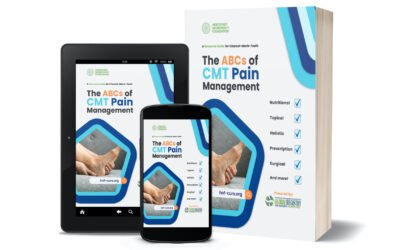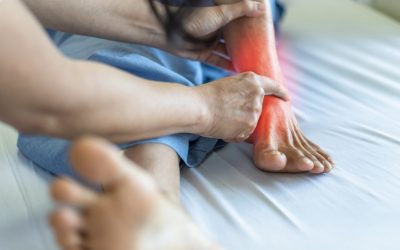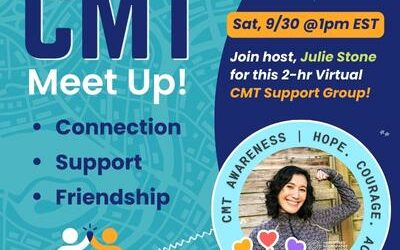Did you know?
More than 130 million Americans suffer from chronic pain.
Chronic pain is a serious problem that shouldn’t be ignored. If you are experiencing chronic pain, it’s important to discuss your physical and emotional symptoms related to your pain with all your health care providers.
Managing chronic pain can be a challenge for both the patient and the health care provider. Keeping your HCP updated with your symptoms and the efficacy of your pain management program is essential for treating chronic pain successfully.
Chronic pain can affect a patient’s strength, balance, and ambulatory independence. It can also affect a person’s mental wellbeing, causing emotional stress that may lead to depression.
If you are suffering from chronic pain, there are a few things you can do to help you manage.
- Make sure you get plenty of quality sleep, physical activity within your limits, and eat a wholesome diet. Stefanie Sacks MS, CNS, CDN, our 2016 Patient-Centered CMT Summit Keynote Speaker, is a firm believer that small changes in food choices can make big differences in our health. Check out her book What The Fork Are You Eating for more guidance on how to make healthier food choices.
- Find support with family, friends, or within your community to help you keep a positive attitude and healthy mindset. Stop by our Inspire online support community and share your experiences.
- Meditation and yoga can help decrease the intensity of pain and ease tensions. A consistent yoga practice can help reduce stress, bringing harmony and balance to the body, mind, and spirit.
What’s your top tip for managing chronic pain?
Please share in the comments below!














I’m 35 and have pretty significant feel lose in my feet so I fall a few times a year… anyways about 6 months back a took a tumble holding my 1 year old son and out if fear he was gonna hit his head (which he would’ve) I didn’t catch myself I just wrapped myself around him and fell really hard onto my right knee on the edge of a rock. Its not any better. Medicaid won’t pay for an MRI I’m about 99% sure I damaged my miniscule tendon. So now what? It’s impacted me carrying my son and climbing stairs and driving and well my whole dang life… I hate it… I hate it so much… I have cmt type A1 symptoms noticeable right away as a baby. How do I fix this?
For pain mgmt I have switched over to a plant based eating lifestyle. No dairy or fish. It has made a big-noticeable difference. I eat 5 -6 small meals a day. 100% whole wheat products have helped. If I stray off and eat meat or even just some fried eggs, my body let’s me know it’s unhappy with me, I get diarrhea. So it’s calmed down the pain alot.
I have pain in my legs and feet from cmt. I am 88 years old and I have significate back pain as well as cmt. I had lumbar back surgery in 2014 but I still have 3 degenartive discs and also need fusion in 3 places in my spine.
Cmt runs in my family and I did not know I had cmt until after my surgery on 2014. My balance is not good and I have drop foot in my left foot. My surgeon does not recommend more surgery on my back. I try to manage my pain, but I would some ideas to help me manage my pain and be more Mobil. I use a walker but I would like to have ability to walk and stand longer.
Please share your experience with feet numbness with me. I am concerned about the numbness that is creeping in from my my toes and bottom of my feet. For the first time noticed it affects my balance. As this gets worse can it lead to feet amputation? It feels like its moving into my lower legs as well and curious if that area can become bad enough that it requires whatever surgical procedure.
Larry, go see a neurologist and be tested. Also, are you a diabetic? Diabetes can cause neuropathy specially in the feet. You have to be careful and check your feet often for cuts and/or pressure sores. If you get a bad infection in your feet, the neuropathy makes it more difficult and much longer to heal.